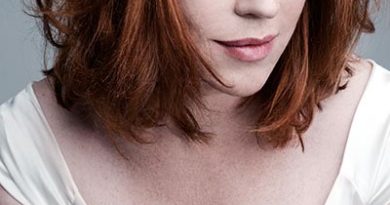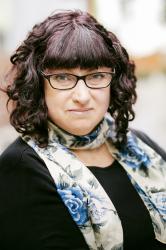Palace of the End: harrowing and beautiful
Tell your story, tell our story or tell a story that means so much to you that it doesn’t matter whose it is. In Palace of the End, nice middle class, successful Canadian writer Judith Thompson tells stories about the wars in Iraq.
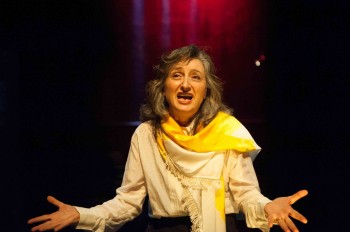
She wasn’t there and her personal connection is living next door to an Iraqi family, so are they her stories to tell? She said in an interview with Canada’s CBC, “Who would I be to write about it? How do I dare? But finally I trusted myself as a writer and made a leap.”.
Her writing starts with facts about three people that results in three fictional monologues. Unlike verbatim theatre (like the documentary style of The New York Theatre Workshop’s Aftermath about Iraqi refugees, which left me shuddering), it doesn’t use the recorded words of real people and this mix of truth and appropriation is both disconcerting and powerful.
Disconcerting because not knowing the line between truth and imagining creates a distance from the characters and the work. Powerful because her imagining lets us see them as so much more than their worst or best recorded moments.
Each of the three could, and will, be remembered for their abhorrent acts and behaviour. Private Lynndie England (Hannah Norris) was a 21-year-old US soldier who posed for photos with abused Iraqi detainees at Abu Ghraib prison. Dr David Kelly (Rob Meldrum) was a British weapons inspector complicit in the “sexing” up of facts, and Nehrjas Al Saffarh (Eugenia Fragos) was a member of the Communist Party of Iraq who let her sons be tortured.
Each story is disturbing and the facts are chosen for their shock and emotional impact, but what makes this production so striking are performances that find the humanity and a raw emotional honesty in each character.
And they are fictional characters. They are based on real people and stories assumed from limited public evidence, but the on-stage stories are fiction. And it’s this fiction that takes each from a story so far from most of our experiences – a story about them – to one that could be mine or ours.
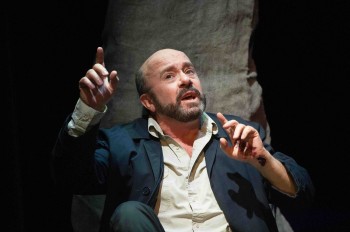
Norris, Meldrum and Fragos’s performances are stunning, and what makes then so remarkably moving is their letting us see how easy it is to make choices that seem unthinkable when looking from the safety of distance and retrospect. As the fictional England says, “Imagine your weirdest second played out for eternity”.
Director Daniel Clarke’s gives his performers freedom to find personal connections with their characters, but ensures a completeness and bigger-picture by helping the audience to connect to the three and letting the three (who would never have met or crossed paths) reach and maybe understand each other.
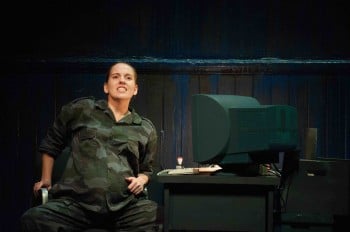
Clarke’s design team (Eugyeene Teh, design; Russell Goldsmith, sound; Rob Sowinski, lighting) are rightly listed as equal creators and have made the Theatre Works space intimate and confining. There’s no escaping to empty space and no where to look but at the people speaking. The long narrow stage lets Norris tell her story from what feels very far away, Meldrum’s is closer and Fragos’s leaves no room to ignore her, making the audience almost complicit in her story. The lighting and sound concentrate the emotion and the inescapable darkness and, with Teh’s exquisite set, give the final air and breathing space that’s needed before walking out into St Kilda and thinking about poppyseed cake or pizza.
Palace of the End at Theatre Works is a harrowing night of theatre with images and emotion that are difficult to forget, but its story about these horrors is beautiful and honest and ultimately hopeful.

